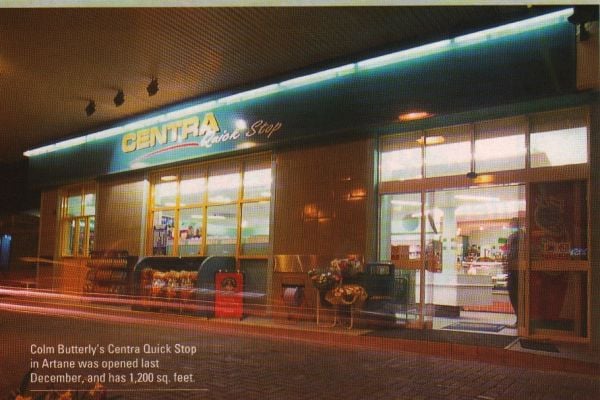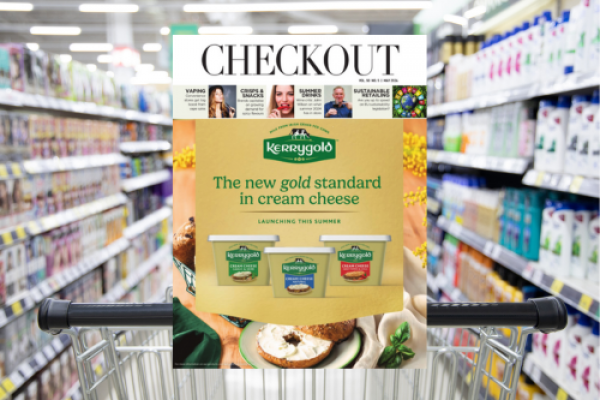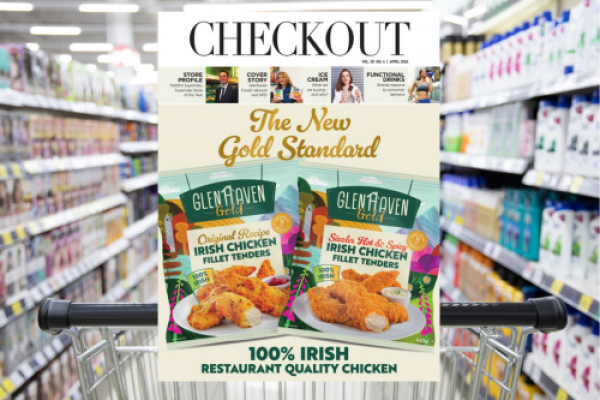This year, Checkout commemorates its 40th anniversary and with this in mind, every week, Retail Intelligence is going to ‘reel in the years’ and publish a story from our extensive archives. This feature from October 1997 examines the rise of forecourt retailing in Ireland, as garages moved into the convenience sector.
No longer just the place to tank up, forecourts have been the focus for retail development and growth in recent years. As profit margins on fuel sales continue to decline, oil companies, dealers and symbol groups have become aware of the potential of forecourt retailing, and have joined forces to introduce consumer-friendly convenience stores. Richard Brophy reports.
While impulse and commodity still account for the majority of sales in forecourt retailing, the introduction of deli and hot food points to the ongoing expansion of their services. Although some industry sources maintain these areas have grown to enhance the profitability of service stations, other players believe that forecourt stores have already taken considerable business from the multiples.
Of current concern to forecourt players are the entry of J.Sainsbury to the Northern Ireland fuel market, and the introduction of new EU regulations governing VOC emissions. However, many are convinced that their operations have the necessary standard of training, service and equipment in place to ensure that neither of these issues halts the progress of the Irish forecourt market.
Padraig Grimes, general manager, retail, Statoil, says that “forecourt retailing is moving at a fast pace: it’s possibly the fastest growing sector in the retail market at the moment.”
Although impulse purchases are very strong, he says that “the biggest category is still tobacco – at one stage it represented up to 50% of shop trade. Nowadays, it’s about 25%.”
Although its share of forecourt trade may have dropped, Andrew Aherne trade marketing manager, Gallaher, believes the forecourt sector is playing an increasingly important part in the tobacco business, with forecourts doubling their volume share to 9% of the six billion unit tobacco market in recent years.
Padraig Grimes says confectionery, carbonated soft drinks and biscuits are performing well and that “food has been the single most important development in recent years. Changing demographics have a lot to do with the development of forecourt retailing in Ireland: people are travelling more and have less time to eat and shop, and forecourts suit these trends.”
As ranges become more extensive, Grimes feels that forecourt staff must strive for a higher level of professionalism.
“We’re getting better at it; it’s not just a can of Coke and crisps anymore, we’re in the convenience business, giving customers fresh food and better pricing. One of the driving forces behind the development of forecourt retailing is decreasing profit margins on fuel. With this continuing downward pressure, ancillary activity is vital. This means the sector is becoming very competitive, with all the major oil companies discovering how profitable a professional offering can be. We how have to regard the multiples as competitors, not head to head for the weekly shopping basket, but for impulse and convenience purchases.”
In the face of stiff competition and the expansion of the forecourt offering to include ATMs, hot food and deli, Statoil has initiated a checking system to ensure standards are maintained.
“We introduced Fareplay to improve the offering to the consumer. This entails offering fresh food, the range and quality of the of a convenience store, and generally maximising the activity of the shop.”
Fareplay is currently operating in the eight company-managed outlets, and there are plans to extend it to outlets managed by licensees and independent operators. Padraig Grimes admits that the hardest part of setting up Fareplay was developing staff skills, and cites hot food and fuel sales as the areas where difficulties arise, “Health and safety are vital, especially when dealing with volatile products. Hot food isn’t something you can do in a half-hearted way; it’s hard to manage, and involves training staff, sourcing the right equipment, and hygiene standards. If we’re going to change the consumer’s perception of forecourt shops, then we’ve got to be serious about all these issues.”
With many outlets extending to 24 hour opening, he says that security is one of the most pressing matters for the modern forecourt retailer. “The welfare of both staff and customers is one of the biggest issues for retailers. The onus is on us to have best practices in place, and we spend enormous amounts of money on security and training. Unfortunately, crime is a feature of doing business in Ireland in the nineties.”









